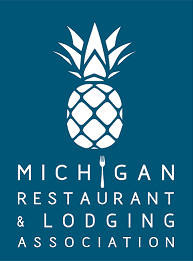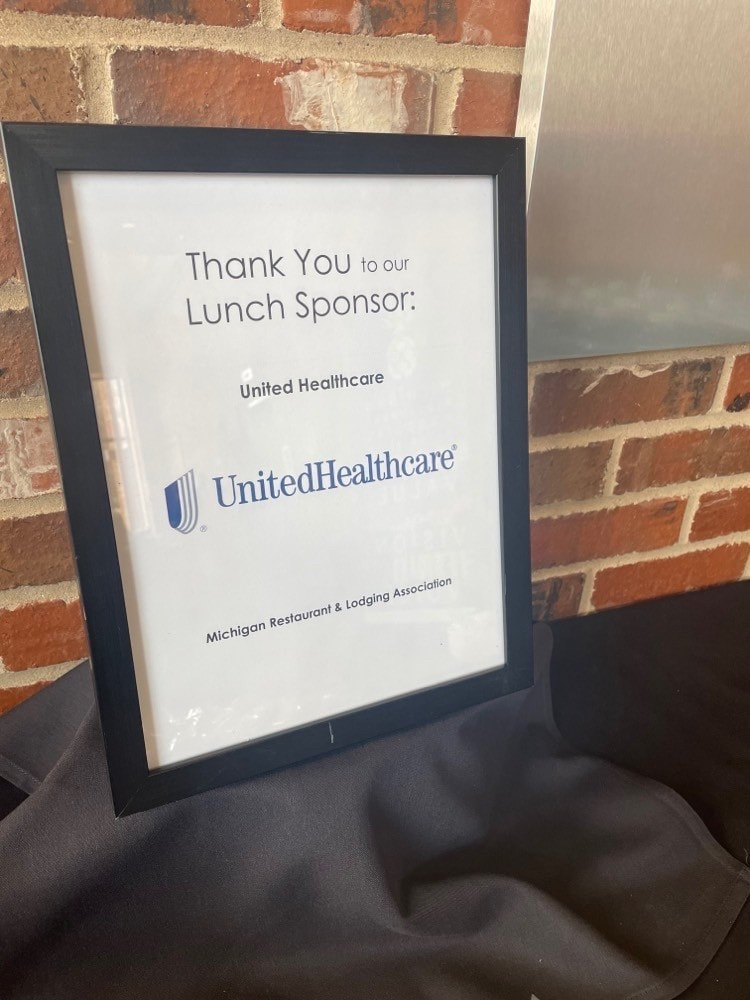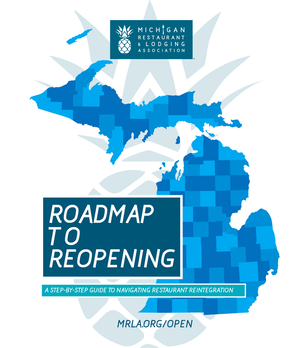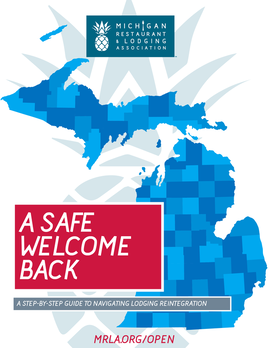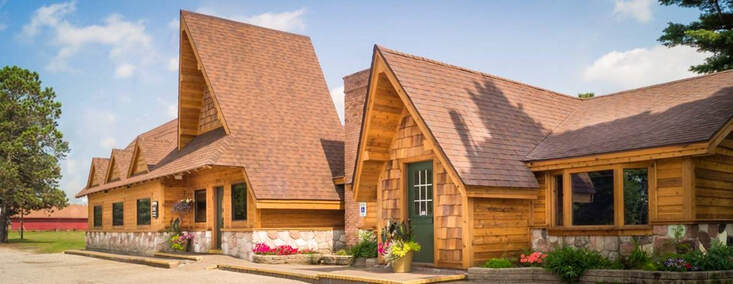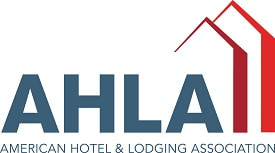COVID-19 : A Snapshot in Time

Racing Against the COVID-19 Clock
As Michigan’s unusually mild winter gave way to spring, the hospitality industry was on the precipice of a gloomy future — the calamity of the year was still unforeseen. On the surface, that beloved Pure Michigan summer was just around the corner, begging for our attention. Lodges and hotels were gearing up for the peak of the wedding and vacation seasons. Restaurants were developing new menus with the best seasonal fare while bars and breweries were cleaning their taps for new spirits. Before long, Michiganders would be heading north to cure their familiar cravings for Mackinac Island Fudge. Out-of-state travelers would begin flooding the Mitten, following their curiosities on trips around the Great Lakes and exploring the state’s treasures. All of this was before the outbreak of COVID-19. Now, the industry is uniting in a race against time, working together to stay ahead of the virus to preserve our unique tourism experiences. How do you put a timeline on a global pandemic? What happens when things don’t run on a clock because there are new changes and obstacles by the second? How do we keep up? The Michigan Restaurant & Lodging Association (MRLA) has been on the front lines for the hospitality industry, working relentlessly against time to share breaking news and vital information in order to protect you and your businesses. Here is a snapshot in time — a chronological capture of major milestones in Michigan’s journey through the COVID-19 outbreak as business owners, employees, and residents navigate its impact on our communities and the industry. March 10, 2020 Governor Gretchen Whitmer declares a state of emergency. March 16, 2020: First major restrictions on places of public accommodation Governor Whitmer signed Executive Order 2020-20, imposing limited and temporary restrictions on the use of places of public accommodation, which included closing all bars and dine-in service at restaurants, cafes, coffee houses, taverns, brewpubs, and distilleries — carryout and delivery orders only. This executive order also placed restrictions on lodging establishments. In the heart of downtown Marquette, the historic Landmark Inn was still open and welcoming guests; it was exempt from the shutdown, but not exempt from the impact and restrictions subsequent to the COVID-19 pandemic and executive orders. With extensive advocacy, the MRLA ensured all places of lodging were designated as essential businesses and remain open, just as was the case for restaurants. In the process though, these establishments were forced to switch gears and rapidly evolve their entire business model and daily operations. New rules about serving meals, limitations on guest interactions, changes to the way rooms are cleaned and how the lobby is arranged were on the immediate agenda. Nick Lentz, Director of Sales and Marketing at Landmark Inn, said the entire team immediately went into strategy mode. They worked closely with their Minneapolis-based parent company, Graves Hospitality, and examined the industry’s best practices with a fine-tooth comb, strictly following the protocols and keeping up-to-date with the latest guidelines. |
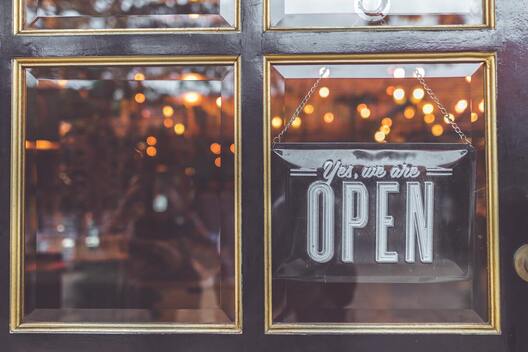
“We’ve always adhered to these best practices, now we are just taking things three steps further,” Lentz says about implementing specific measures. “We’re committed to reducing any risk, as much as possible, so we can stay open for our guests and community.”
When Lentz says “three steps further,” he means employees wore gloves and masks and stood behind plexiglass partitions. He means blocking the lobby and shared spaces to contain sanitation areas, operating only two of five floors for guest stays. Stayover service was temporarily discontinued to limit exposure for housekeeping staff and guests, leaving rooms off the market for three to four days at a time for proper ventilation before being entered for cleaning. Under the trained eye of Executive Chef Jordan Green, Landmark broke away from traditional roll-up cart room service, switching instead to what they refer to as a “knock and drop” service. All orders are packaged in carryout containers and tamper-proof sealed bags — guests are notified when their food is en route, and the staff member leaves it at the door. Chef Green says these new practices feel extremely impersonal for an industry built on the foundation of human connection, but guests have remained understanding of the precautions and appreciate the service. “It’s certainly not the level of hospitality we enjoy providing,” he explains. “But for the safety of our guests and staff, we’ll do whatever is needed to deliver the best service given these circumstances — we care about them.” March 23, 2020: Governor Whitmer announces the “Stay Home, Stay Safe” order Governor Whitmer signed the "Stay Home, Stay Safe" executive order, ordering all Michigan residents to stay home, unless they are an essential worker, which includes those working in restaurants or lodging establishments. April 13, 2020: Governor Whitmer announces a spirits buyback program In response to the unexpected surplus of inventory, particularly alcohol, in restaurants and bars across the state, the MRLA advocated for immediate solutions. This ultimately led to Governor Whitmer’s announcement of Executive Order 2020-46, which established a buyback program for spirits that were inventoried as of March 16, 2020. The order provided more than $3.3 million in financial relief to six hundred and fifty-seven bar and restaurant owners across the state. May 7, 2020: Governor Whitmer announces the Michigan Safe Start Plan The Michigan Safe Start Plan outlines a phased plan on how the state will begin to re-engage while continuing to keep our employees, customers, and communities safe. May 8, 2020: The MRLA releases “Roadmap to Reopening” for restaurants In perfect tandem with the Governor’s Michigan Safe Start Plan, the MRLA released the “Roadmap to Reopening”, a comprehensive guidebook designed to help Michigan restaurants prepare to reopen their dining rooms amid new federal and state regulations, and with new expectations of safety by the general public. |

June 8, 2020: Michigan restaurants and bars reopen — the MRLA releases “A Safe Welcome Back”
On June 1, with Executive Order 2020-115, Governor Whitmer announced that the state was moving to Stage 4 of the Michigan Safe Start Plan and lifted the “Stay Safe, Stay Home” order — with it, restaurants and bars were granted the green light to fully reopen on June 8 under new mandates. This was the moment Michiganders had been longing for, regaining those patio dinners with family and rooftop brunches with friends, enjoying afternoon brewery hangs, and celebrating life milestones around a table with the best service in town. Within the buzz of this excitement was the gentle reminder that those things aren’t exactly what they used to be, at least for now. Given this new climate, businesses — specifically those in the hospitality industry — have never been more at the mercy of federal, state, and local guidance. Ever-evolving CDC guidelines and executive orders require owners to adapt their operations accordingly. The MRLA has been on the frontlines of absorbing new guidance, executive orders, and other mandates in order to summarize and send out breaking news alerts to members. Within two weeks of resuming in-person activities or service, all businesses are required to institute a COVID-19 preparedness and response plan consistent with recommendations developed by the Occupational Health and Safety Administration (OSHA). To aid the process, the MRLA developed comprehensive guides to help Michigan establishments prepare for safe reopening. On June 8, they released “A Safe Welcome Back” for lodging properties, exactly one month after releasing the “Roadmap to Reopening” for restaurants on May 8. Dinner Is Served — Just in A New Way Featured in the New York Times, the restaurants at Landmark Inn are known for their range of dining settings and fare, each as impressive as the other. Now, it was time to restore a dining experience beyond “knock and drop” deliveries at the doors of guests’ rooms, and both Nick Lentz and Chef Jordan Green knew that meant covering all the necessary bases. The team took the procedures and best practices implemented by Graves Hospitality, paired them with the state’s executive orders, health department guidelines, and extensive MRLA resources to develop an adjusted operational model. “We’ve been paying close attention to everything around us so we can be transparent with the public about what safety measures we’ve been implementing,” Lentz explains. “It requires a lot of staff training, extremely diligent housekeeping, and clear communication with guests, especially those like potential banquet clients who are calling ahead with important questions about restrictions on those services.” That seems to be Landmark’s key method, paying close attention. While June 8 marked the official reopening day for restaurants and bars, Lentz, Green, and their team patiently waited...and paid very close attention. They surveyed the market and constantly monitored changes, specifically observing what other establishments in the Marquette area were doing. “From an operational standpoint, it just made sense for us to remain closed until we could provide the service that we could execute with surety,” says Chef Green. “I wanted things done correctly, leaving nothing in question, because we took everything into consideration.” |
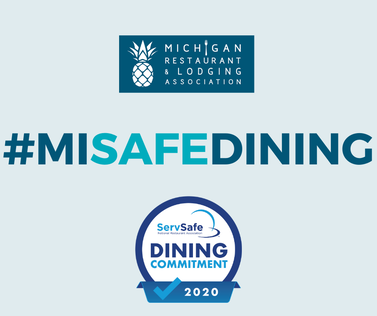
Once again, by paying very close attention, the team knew exactly what a well-oiled process and enjoyable experience needed to look like: Masked guests are greeted at a designated entrance, they stand socially distanced and view the menu on a large screen T.V., they place their order at a counter protected by a plexiglass partition, after grabbing a drink from the full bar, they find their way to their own seats, when the server brings their meals, each is neatly served on a banquet plate with cap.
“It’s almost as if even our plates are wearing masks,” the two muse. “We are erring on the side of caution and minimizing risks as much as possible, knowing we want to stay open and keep our guests and employees protected.” In July, the MRLA launched the multi-faceted ServSafe Dining Commitment program, supported by the NRA, to showcase the restaurants that have demonstrated their ongoing commitment to protecting the health and safety of their employees and guests. Through participation in the program, restaurants can reassure customers that their operations are carefully following recommended reopening guidance and have employees who are ServSafe certified. July 1, 2020: New restrictions placed on indoor service bars Per Executive Order 2020-143 under Governor Whitmer, effective July 1, restaurants in Regions 1-5 and 7, in accordance with the Michigan Safe Start Plan, were required to stop indoor service if 70 percent or more of gross receipts are generated from alcohol sales. These establishments were limited to outdoor service only. Restaurants were permitted to remain open for indoor service, but alcohol could be served only to patrons seated at socially distanced tables. July 31, 2020: Restrictions placed on indoor service bars are expanded On July 29, Governor Whitmer signed Executive Order 2020-160 and Executive Order 2020-161, amending Michigan’s Safe Start Order and issuing revised workplace safeguards. Effective July 31, statewide indoor gatherings were limited to ten people and bars that earn more than 70 percent of their gross receipts from sales of alcoholic beverages were ordered to close for indoor service across the state, including in Regions 6 and 8. As of August 1, restaurant dining remains unaffected statewide, with indoor dining still allowed at 50 percent of capacity with six feet of distancing. Faced with yet another challenge, the industry must keep its wheels turning to initiate new solutions. In response to the continued bar closures and service restrictions, the MRLA worked diligently with Michigan lawmakers to swiftly introduce and pass Public Act 125 of 2020, mixed drinks and other distilled spirits cocktails can now be sold to-go or delivered to a customer’s home. The MRLA constantly seeks opportunities to drive revenue into Michigan’s hospitality industry; our mission is to promote prosperity in the industry and communities, but our purpose is who we do it for. When Worlds Collide: Protecting the Industry’s People Global pandemic or not, what is this industry without people? We need investors, owners, employees, community members, families, traveling professionals — we all rely on each other to keep the wheels turning, especially in the COVID-19 world. “We exist to create good experiences and lasting memories for people who come to beautiful Marquette trying to get away from their day-to-day,” Landmark’s Nick Lentz explains. “By making sure we are giving them a great experience, we’re being good investors for Marquette.” |
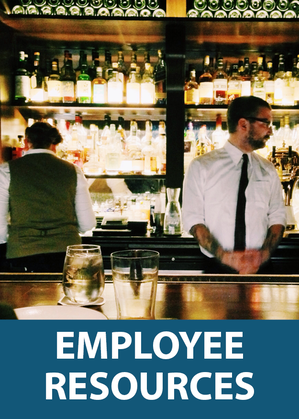
Lentz rightfully insists that successful operations and a top-notch experience begin with healthy and protected employees, especially right now — “No one should ever feel unsafe at work.”
The notion is well-supported, we must ensure Michigan workers are protected so they can do what is needed most to protect the health and safety of this state and its residents. Since the shutdown, Governor Whitmer issued several executive orders specifically protecting workers from COVID-19. On April 3, Executive Order 2020-36 was issued to protect workers who stay home when they or their close contacts are sick. On May 18, Executive Order 2020-91 enforced intense safeguards within the workplace, including the OSHA preparedness response plan required to resume activities and services. The state, the National Restaurant Association (NRA), and the MRLA provide extensive resources for business owners and employers, like the NRA’s best practices for welcoming staff back and handling a COVID-19--positive employee. The MRLA’s “Roadmap to Reopening” for restaurants and “A Safe Welcome Back” for lodging properties remain some of the most helpful resources for reopening and keeping employees safe in the workplace. For many communities, it’s well understood that protecting and supporting employees and our communities extends beyond safety measures, it’s more than face masks, handwashing, and extensive training. It All Comes Full Circle Following the first round of the Governor’s executive orders, Bennethum's Northern Inn in Gaylord closed its doors for eleven weeks. As a family-owned restaurant, the priority has always been exactly that, family and people. Owner Jeff Bennethum shares how the community rallied behind the Inn in what became the ultimate form of support. |
|
“Bad situations bring out the best in a lot of people,” Bennethum remarks. “I can’t believe the encouragement we continue to receive from our customers and community at this time. It’s been a special kind of connection.”
The industry has seen its changes and challenges, but never has it weathered a global pandemic, yielding to persistent executive orders, and arming itself to protect the health and safety of the public. Nestled in the heart of the Midwest, Michigan remains benevolent and welcoming of all things, reminding us that when faced with change in our industry, we remain innovative and resilient. |
